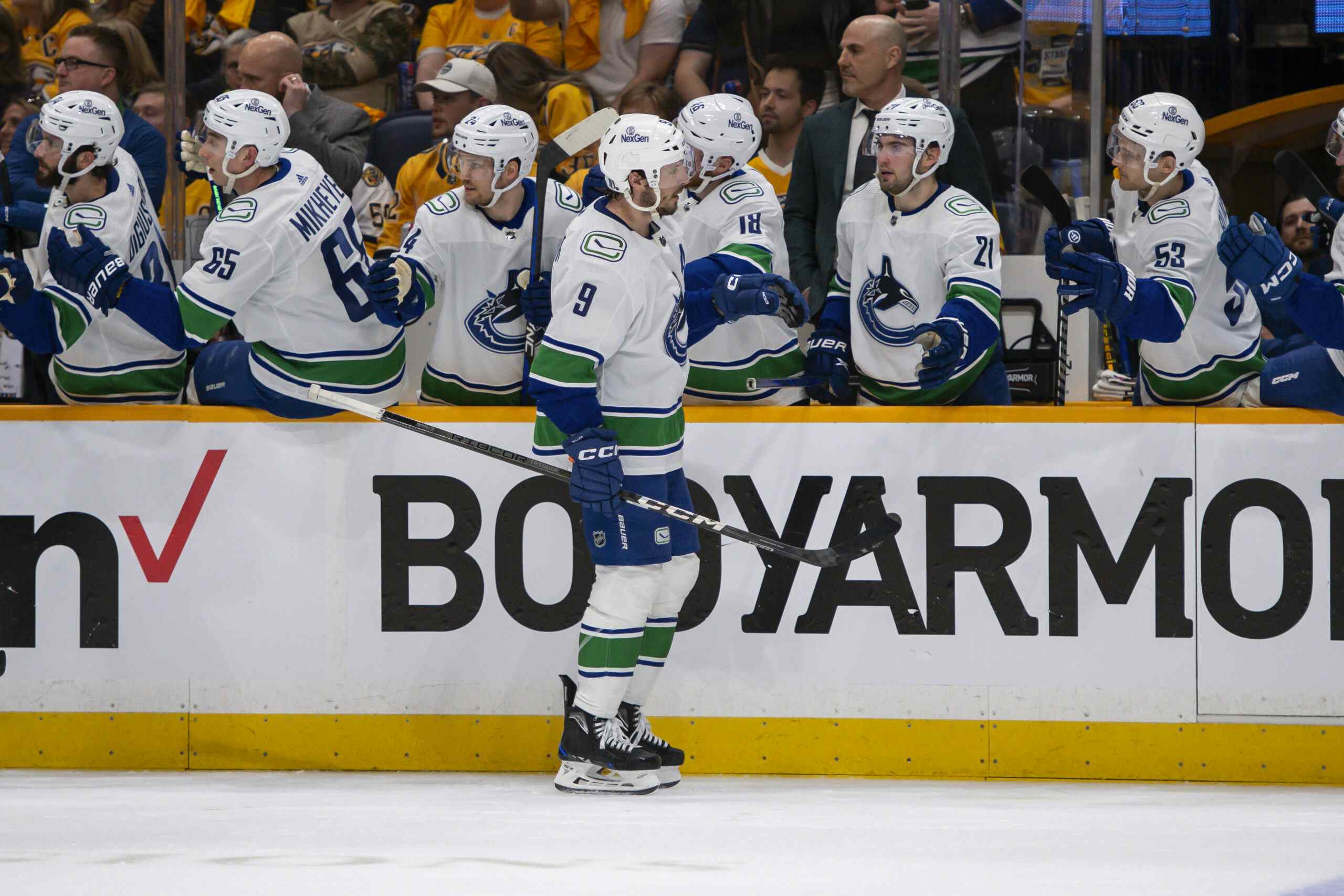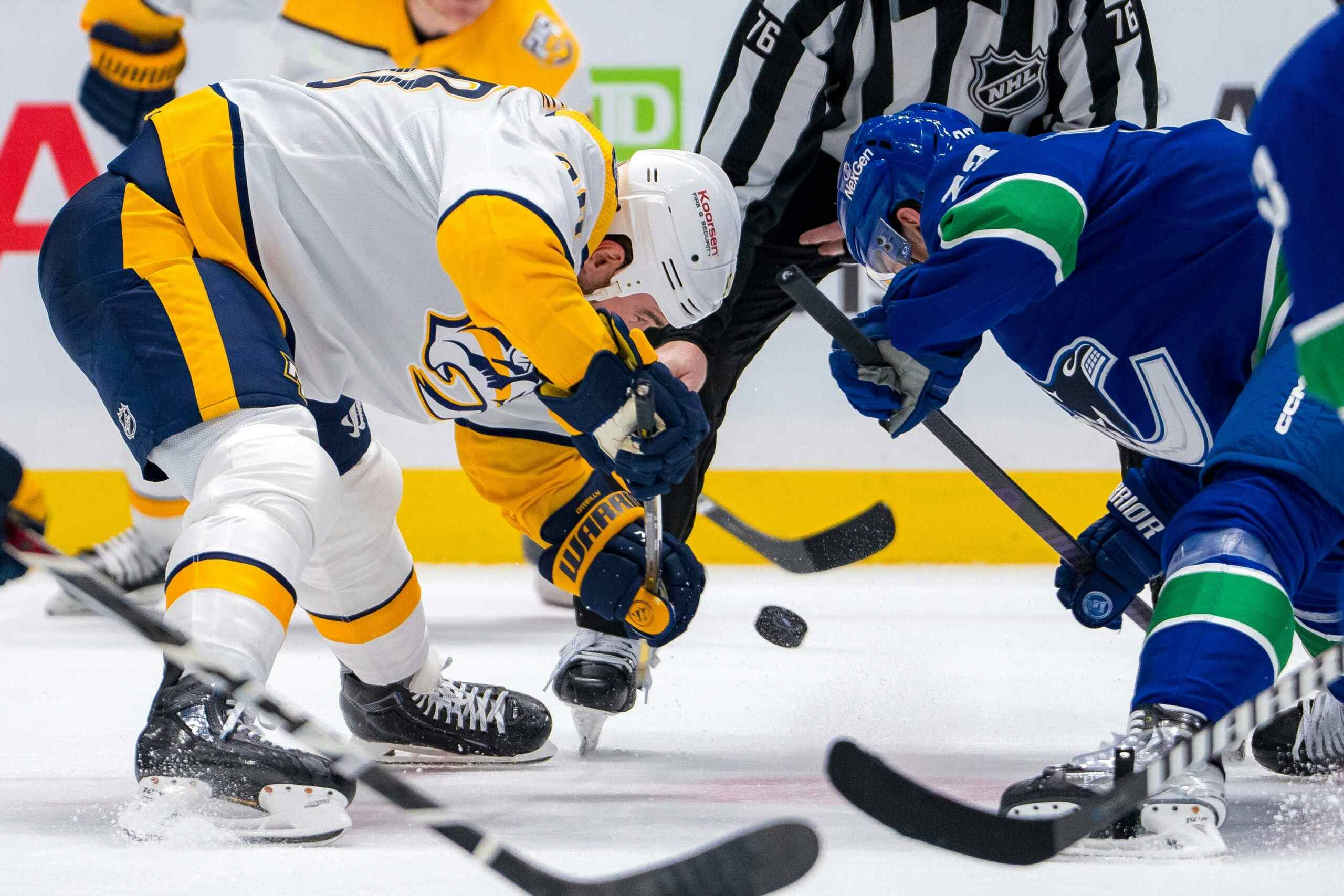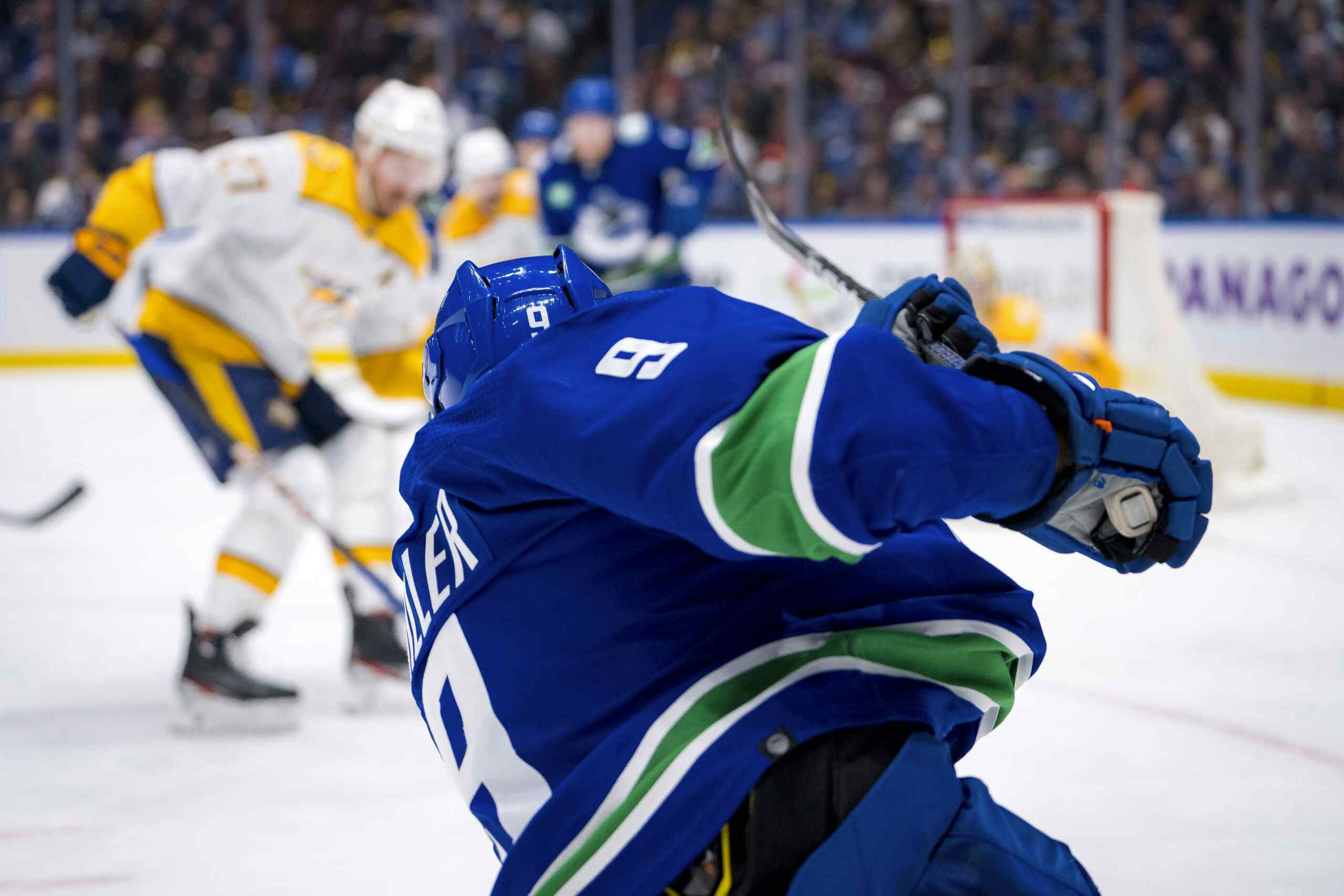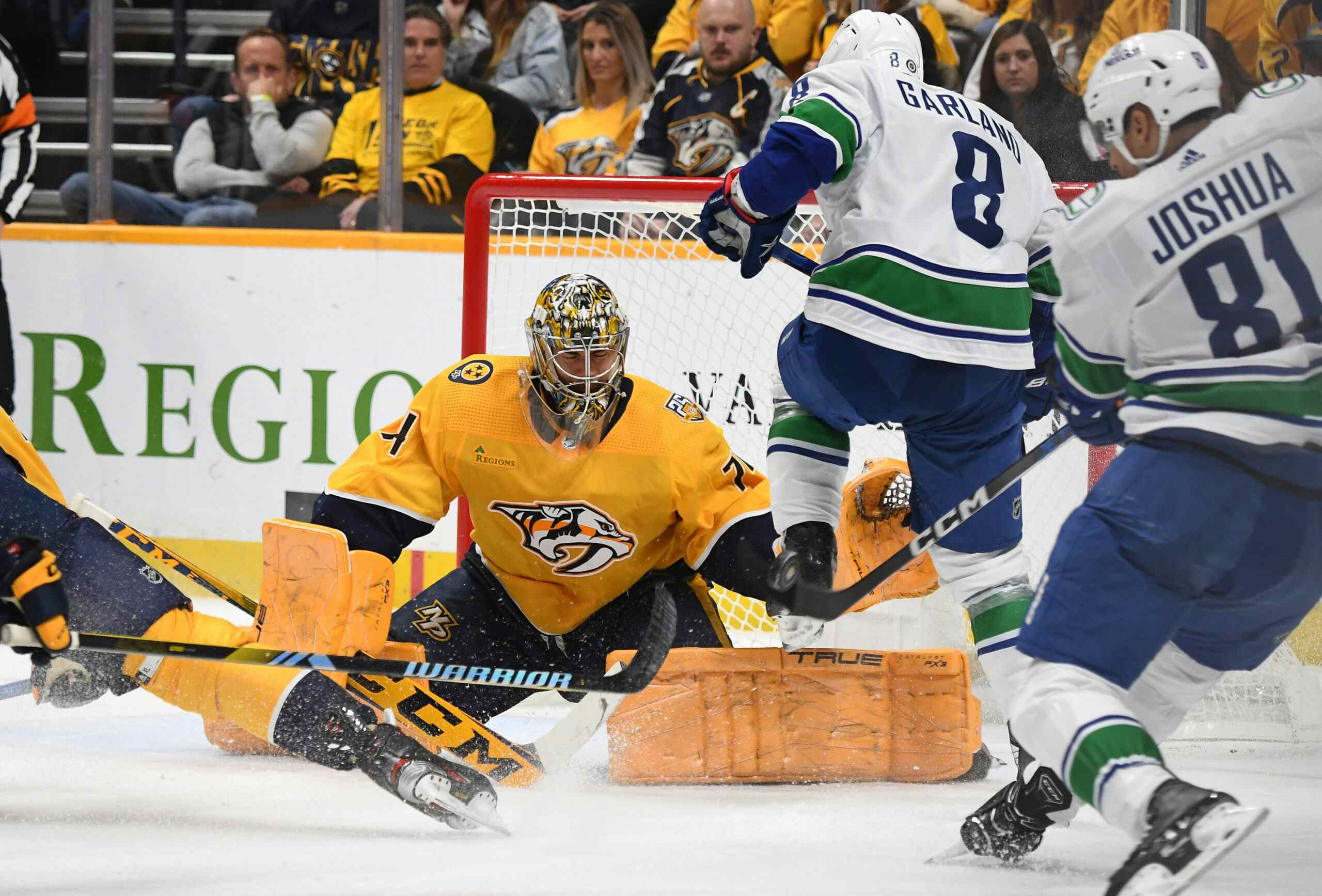The Case For Eliminating The Offside Review
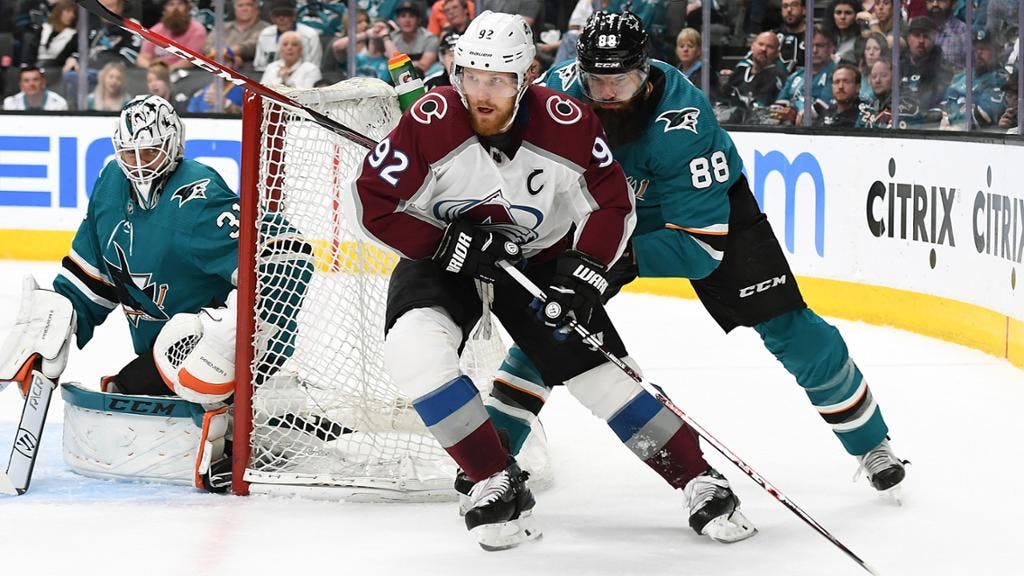
The long-simmering debate over the necessity of the coach’s challenge for offside was ignited once again after May 8’s Game Seven between the San Jose Sharks and Colorado Avalanche—one that the Sharks won, but only after a goal by Gabriel Landeskog was controversially disallowed.
Failed to load video.
We’re not here to rehash the argument over whether or not Landeskog was truly offside—we’re here to make the case that the review never should have happened, and that the NHL would be better off eliminating the offside portion of the coach’s challenge. The rule has been a part of the league since the start of the 2015/16 season, and four seasons has been more than enough time for it to wear out its welcome. The Landeskog incident is far from the first controversy caused by the coach’s challenge for offside, and it won’t be the last—unless the league makes a change.
In fact, we’re of the opinion that the assertion is so ironclad that it would be an outright shocker if the rule change didn’t occur in the summer of 2019—and a major missed opportunity for the league to improve its product.
The Entertainment Factor
The overall aim of the coach’s challenge is to increase the legitimacy of the league, not its entertainment value—and that’s eminently evidenced by how boring most goal reviews are. Not only do coach’s challenges bring a screeching halt to the momentum of both the game and the crowd, they’re also not all that interesting to watch in most cases.
Coach’s challenges can only be called for goaltender interference and offside. While endless replays of players bumping into goalies can occasionally make for exciting television, it’s rare—but at least we get to watch a goal being scored over and over again. That’s still a fair step better than offside reviews—which consist of multi-angled replays and slow-motion breakdowns of players skating over a big blue line painted on the ice, often long before any actual goal is scored.
By choosing to include the coach’s challenge for offside in their set of rules, the NHL is choosing to frequently hit the brakes on the most exciting sport on earth so that fans can be subjected to a pedantic investigation about a zone entry.
Why Offsides, And Not Other Infractions
It is true that the ability of officials to doublecheck whether or not a player was offside on a play that resulted in a goal does make the league more legitimate—but why stop there? Players are still being thrown out of games for legal checks and blown icing calls have had devastating effects.
Failed to load video.
If the NHL wants to stop the game so it can doublecheck offsides, why aren’t they also doing the same for penalties and other infractions? It’s arguable that erroneous penalties—and especially major penalties—have more potential to give one team an unfair advantage over another than a player being an inch or two offside. After all, just look at the controversy that marred the San Jose Sharks’ first round victory over the Vegas Golden Knights.
Failed to load video.
It seems inconceivable that offsides are reviewable and major penalties are not, but that’s the exact arbitrary situation that the NHL has created. The inconsistency robs the league of any legitimacy it gains from having the coach’s challenge for offside in the first place.
Offsides Are Rarely Consequential To Goals
It’s probably fair to just state outright that offside plays are only rarely actually consequential to the scoring of goals. Again, it’s questionable how much of an advantage one actually gets by being barely offside, and we’ve all seen all-too-many coach’s challenges for offsides that occurred dozens of seconds before a goal and had nothing to do with the play that created it.
That feels like it could be an inherently biased false assumption on the part of this author, however, so we decided to check our hypothesis using the actual numbers behind the coach’s challenge.
With the increasing presence of replay technology on NHL benches, the success rate of the coach’s challenge is improving—but it still isn’t much of a testament to its necessity. In 2018/19, league coaches challenged a total of 91 goals for offside violations and 61 of them were overturned—for a success rate of 67%.
Those extra goals would have represented just 0.016% of the total goals scored in 2018/19—which certainly doesn’t seem like a lot. For comparison’s sake, powerplay goals made up 19% of the total goals—but penalties are not reviewable or challengeable.
The Human Error Factor
Human error has always been a vital component of sport—and that’s especially true for hockey, often described as a game of mistakes. Hockey just wouldn’t be as exciting without the individuals involved making miscues—and that’s just as true of a defenseman giving away a puck as it is of an official blowing a call, though fans often find it difficult to see it that way.
The NHL has long-since abandoned its unofficial slogan of “the fastest game on ice,” but it’s still true that speed is the league’s number one selling point to casual and dedicated fans alike. Things simply happen in the NHL at a much quicker pace than they do in the other major professional sports leagues—or other hockey leagues, for that matter. The natural consequence of that speed is human error, but that doesn’t take away from the excitement of it all—rather, it only injects uncertainty and unpredictability into the mix.
Stopping a game to doublecheck an official’s work only takes away from the speed and momentum of a hockey game. It should be avoided unless absolutely necessary, because the consequences of a bad call don’t outweigh the consequences of interrupting a sport that relies on its constant flow of action to attract viewers. The league already accepts some level of human error in its referees by not reviewing their penalties, so why is an offside any more of an acceptable reason to interrupt the flow.
Getting jilted by the refs isn’t something that ruins the hockey experience, it’s a vital component of it—so much so that fans of every single NHL franchise believe that the officials of the league are conspiring against them.
(Of course, Vancouver fans know that such thinking is ridiculous—how could the league find time to conspire against other teams when they’re so busy finding new ways to screw over the Canucks?)
Much of the excitement and emotion of a hockey game comes from the speed and uncertainty of it—and referee errors are both a consequence of and a contributor to those factors. It is woven within the fabric of the sport.
We can all probably agree that it’s worth reviewing whether or not the puck actually went into the net or not—that’s a pretty fundamental component in legitimate goal-scoring. Reviews—and even coach’s challenges—for goaltender interference probably aren’t going anywhere. There’s also a strong case to be made for at least doublechecking before tossing a player out of a game.
Beyond that, is there really anything wrong with leaving everything else in the human, error-prone hands of NHL officials? Especially the parts of the game that involve the crossing of arbitrary boundaries? Offside just aren’t worth a second look—both in the logistical and the “providing consistent entertainment value in an oversaturated pro sports market” senses. Getting rid of the coach’s challenge for offside is just good business.
Recent articles from Stephan Roget


